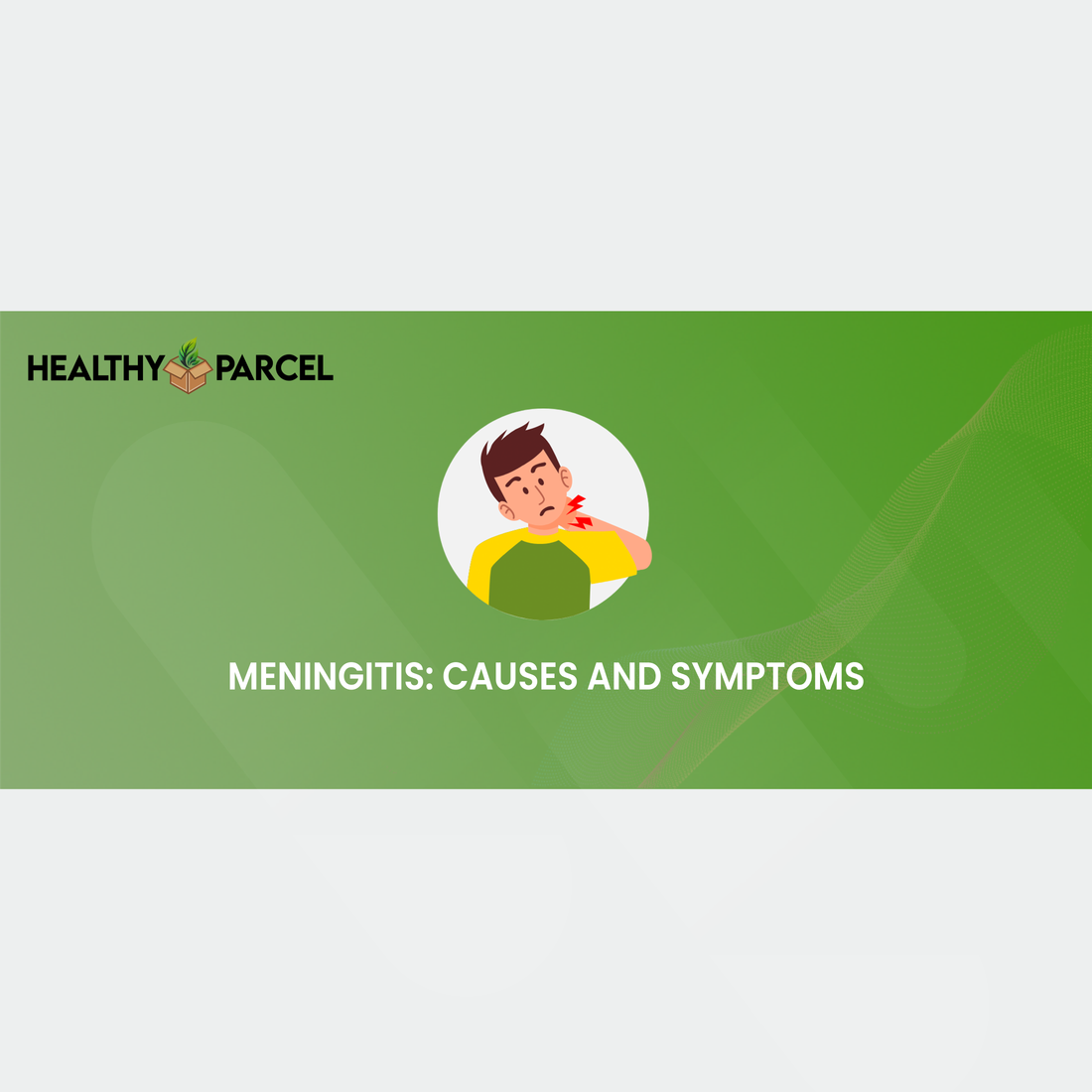Meningitis is an infection that causes inflammation in the fluid and membranes around the brain and spinal cord, known as the meninges.
This inflammation usually leads to symptoms like headaches, fever, and a stiff neck.
In the United States, most meningitis cases are due to viral infections, though bacteria, parasites, and fungi can also be culprits. Some forms of meningitis clear up on their own within a few weeks, while others can be life-threatening and need immediate antibiotic treatment.
If you suspect meningitis in yourself or a family member, seek medical help right away. Prompt treatment for bacterial meningitis can prevent serious health issues.
Symptoms

Early signs of meningitis can resemble the flu, developing over several hours or days.
For individuals over 2 years old, symptoms may include:
- Sudden high fever
- Stiff neck
- Severe headache
- Nausea or vomiting
- Confusion or difficulty concentrating
- Seizures
- Sleepiness or difficulty waking up
- Sensitivity to light
- Lack of appetite or thirst
- Skin rash (in cases of meningococcal meningitis)
Signs in Newborns

Newborns and infants might show:
- High fever
- Constant crying
- Excessive sleepiness or irritability
- Difficulty waking up
- Lethargy
- Refusal to eat
- Vomiting
- Bulging in the soft spot on the head
- Stiff body and neck Infants with meningitis may be hard to soothe and might cry more when held.
When to See a Doctor

Seek immediate medical attention if you or someone in your family exhibits symptoms like:
- Fever
- Persistent severe headache
- Confusion
- Vomiting
- Stiff neck
Bacterial meningitis is severe and can be fatal within days without prompt antibiotic treatment. Delaying treatment increases the risk of permanent brain damage.
If you've been in contact with someone who has meningitis, such as a family member or close coworker, speak to your healthcare provider. You might need medication to prevent infection.
Causes
Meningitis is most commonly caused by viral infections, followed by bacterial infections. Rarely, it can be caused by fungal or parasitic infections. Determining the cause is crucial because bacterial infections can be fatal.
Bacterial Meningitis

Bacterial meningitis occurs when bacteria enter the bloodstream and travel to the brain and spinal cord, or directly invade the meninges. This can happen due to ear or sinus infections, skull fractures, or, rarely, surgeries.
Common bacterial strains causing meningitis include:
- Streptococcus pneumoniae: The leading cause of bacterial meningitis in the U.S., especially in infants, young children, and adults. It also causes pneumonia and ear or sinus infections. Vaccination can help prevent it.
- Neisseria meningitidis: Causes meningococcal meningitis, often following an upper respiratory infection. Highly contagious, it primarily affects teenagers and young adults and can cause local outbreaks in dormitories, boarding schools, and military bases.
- Haemophilus influenzae type b (Hib): A leading cause of bacterial meningitis in children, the incidence has significantly decreased due to the Hib vaccine.
- Listeria monocytogenes: Found in unpasteurized cheeses, hot dogs, and lunch meats, it primarily affects pregnant women, newborns, older adults, and those with weakened immune systems. Listeria can cross the placenta during pregnancy, potentially causing fatal infections in newborns.
Viral Meningitis
Viral meningitis is usually mild and often resolves on its own. In the U.S., it is commonly caused by enteroviruses, especially in late summer and early fall. Other viruses, such as herpes simplex virus, HIV, mumps, and West Nile virus, can also cause viral meningitis.
Chronic Meningitis
Chronic meningitis develops over two weeks or more due to slow-growing organisms like fungi and Mycobacterium tuberculosis. Symptoms include headache, fever, vomiting, and mental cloudiness, similar to acute meningitis but prolonged.
Fungal Meningitis

Rare in the U.S., fungal meningitis can mimic bacterial meningitis and often results from inhaling fungal spores found in soil, decaying wood, or bird droppings. Cryptococcal meningitis is common in people with weakened immune systems, such as those with AIDS. It requires antifungal treatment and can be recurrent.
Parasitic Meningitis
Parasitic meningitis, including eosinophilic meningitis, is rare and often results from eating contaminated food or, in the case of amoebic meningitis, swimming in freshwater. It is not spread from person to person.
Other Causes
Meningitis can also result from noninfectious causes like chemical reactions, drug allergies, certain cancers, and inflammatory diseases such as sarcoidosis.
Complications

Meningitis can lead to severe complications, especially if not treated promptly. Risks include:
- Hearing loss
- Memory problems
- Learning disabilities
- Brain damage
- Trouble walking
- Seizures
- Kidney failure
- Shock
- Death
With prompt treatment, recovery is possible even in severe cases.
Prevention
Meningitis can spread through coughing, sneezing, kissing, or sharing utensils, toothbrushes, or cigarettes. Preventative measures include:
- Hand-Washing: Wash hands frequently, especially before eating, after using the restroom, and after being in public places.
- Good Hygiene: Avoid sharing drinks, food, straws, utensils, lip balms, or toothbrushes.
- Healthy Lifestyle: Maintain a strong immune system with adequate rest, regular exercise, and a healthy diet rich in fruits, vegetables, and whole grains.
- Cover Mouth and Nose: When coughing or sneezing, cover your mouth and nose.
- Pregnancy Precautions: Cook meat thoroughly, avoid unpasteurized dairy products, and choose cheeses labeled as made with pasteurized milk to reduce the risk of listeria infection.
Key Takeaways
Meningitis, an infection causing inflammation of the brain and spinal cord's membranes, is most commonly caused by viral infections, followed by bacterial infections, which can be fatal if not treated promptly. Bacterial meningitis often arises from bacteria entering the bloodstream or directly invading the meninges, with major strains including Streptococcus pneumoniae, Neisseria meningitidis, Haemophilus influenzae type b (Hib), and Listeria monocytogenes. Fungal and parasitic infections are rarer causes but can be serious. Complications from untreated meningitis can be severe, including hearing loss, brain damage, and death. Always seek the help of a healthcare practitioner in case of infection, as well as proper advice on how to prevent getting meningitis.

